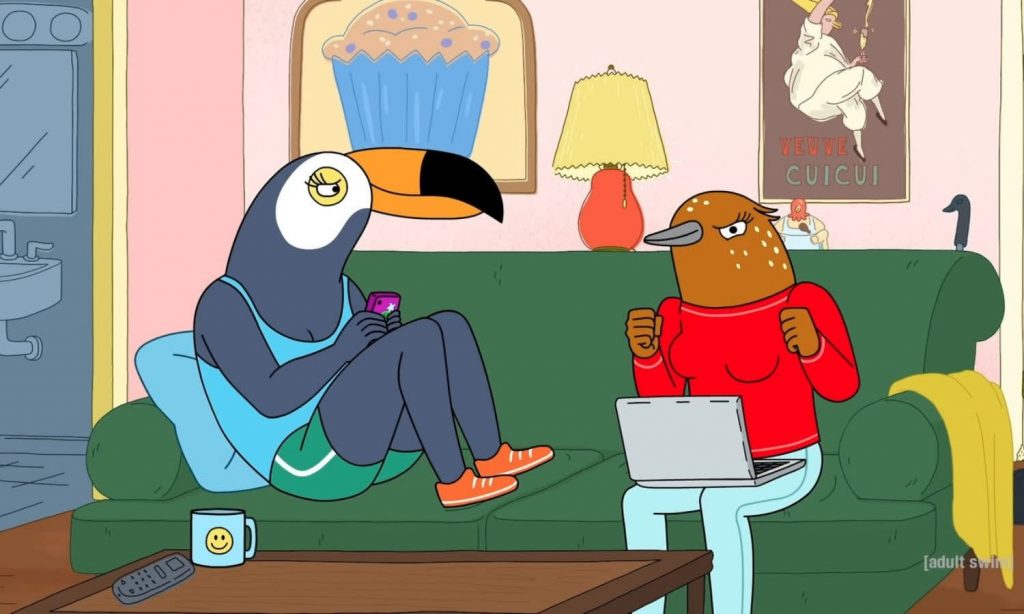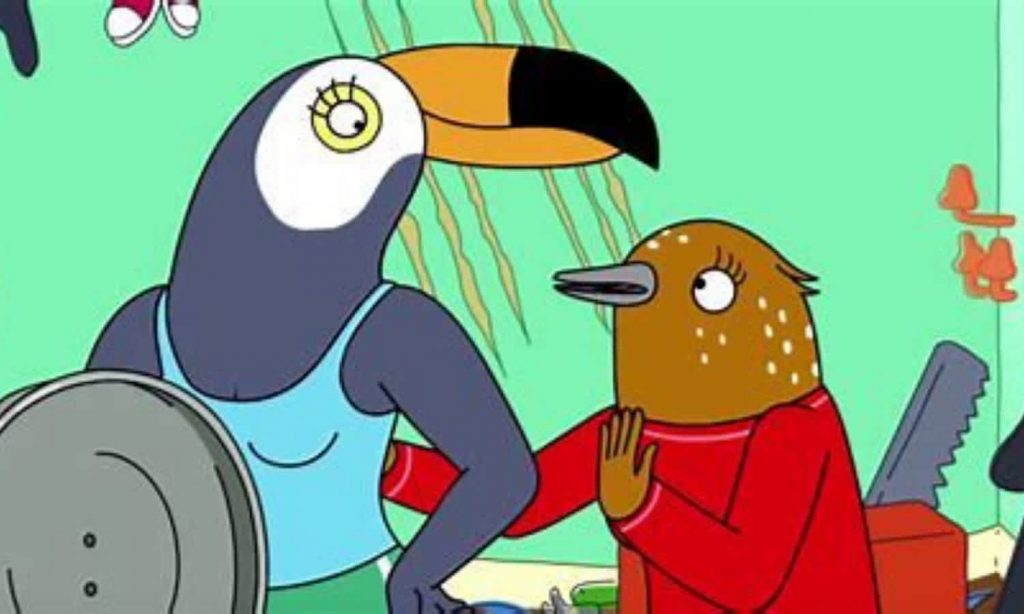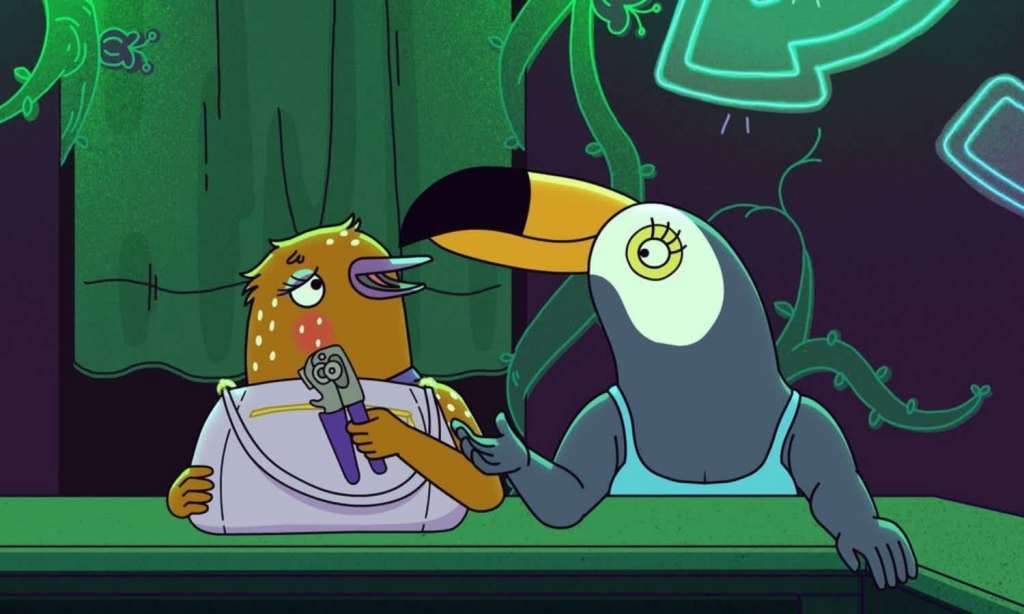We’ve written before about the best-animated series for adults, and you’d better believe that Tuca and Bertie made that list.
Created by Lisa Hanawalt — who was a producer and artist on Netflix’s beloved Bojack Horseman — Tuca and Bertie is both pretty out there, and yet deliciously relatable.
The cartoon centres on Tuca (Tiffany Haddish) and Bertie (Ali Wong) who are best friends (and birds) despite being vastly different. Tuca is a recovering alcoholic who doesn’t quite have her life together and is prone to crazy adventures whereas Bertie has a steady job and partner but is plagued with anxiety and self-doubt. She is also dealing with the ramifications of trauma, having been sexually assaulted.
This is one of the reasons why Tuca and Bertie is one of the most important adult animations currently on the air — it is not only created by a woman and about women, but it delves into the topic that resonates most with a modern female audience and in a way not found anywhere else.

As we’ve said before, cartoons are able to explore subject matter in a way that capitalises on the visual absurdity in order to make unpleasant truths more palatable or to get away with blurring boundaries.
Take, for example, The Simpsons; whose most famed writer recently told The New Yorker how they were able to get away with the extreme violence portrayed on Itchy & Scratchy.
“We could show horrendous things to the children at home, as long as we portrayed them being shown to the Simpsons’ children first,” Swartzwelder said.
“Somehow this extra step baffled our critics and foiled the mobs with torches.”
In the case of Tuca and Bertie, the series is not only a vibrant exploration of female friendship, sexuality, mental health, self-discovery and the #MeToo movement but also another glorious example of the boundaries you can push in an animation. Case in point, the buildings have breasts in Bird Town (the vividly imagined city the friends live in) because why the hell not?
Hanawalt told Rolling Stone that after working in the more “grounded” world of Bojack Horseman, she wanted her characters to inhabit a “stranger, trippier, place…where inanimate objects can come to life and talk.”
On the subject of talking, Hanawalt also shared with the publication what she was hoping to bring to life with the topics the series covers, explaining that she wanted to explore the types of things that can start to threaten female friendships as we move into our thirties, such as one friend getting married and starting their family while the other remains single.

While these are topics that have certainly been covered by sitcoms such as Friends and How I Met Your Mother, Tuca and Bertie’s exploration also comes with a dark side.
“I usually start with the serious stuff that I want to say,” Hanawalt said. “Like, let’s do an episode about sexual abuse, and how does that keep popping up over and over again even though you felt like you’ve already processed it. And that’s a really serious thing. But then we can start to figure out a surreal way to show that, and we can put in all these jokes and visual gags.”

What this means, hopefully, is that people who have not suffered the trauma of abuse, addiction or abandonment are offered a window into these worlds in a way that is perhaps easier to digest and, therefore, more likely to lead to empathy and understanding. The world of Tuca and Bertie may be aesthetically outrageous, but this is precisely how it creates space for an important dialogue that many don’t know how to begin, even four years into the #MeToo movement.
“It’s hard because people are used to associating adult animation with mostly white, male, straight voices,” Hanawalt told Rolling Stone. “I think the audience is shifting, and voices in animation are shifting quickly. But there’s definitely a lot of barriers that are frustrating. People see Tuca & Bertie as by women, for women.
“It’s like: No, it’s for everyone. Our audience for the first season was half male. And that’s how it should be. Men should watch shows about women as well. We’re a big part of the population. And women are funny and weird and gross. And, you know, representation does matter. It’s humanising.”
Frustratingly, despite being critically adored, Tuca and Bertie only enjoyed one season on Netflix before being cancelled due to the streamer’s evolving algorithm, but thankfully it was picked up by Adult Swim where audiences can now watch season two.
Read more stories from The Latch and subscribe to our email newsletter.







